SoftBank Corp. Develops Orchestrator to Operate AI and vRAN on the Same Virtualized Infrastructure
Kyoko Shimada
SoftBank Corp.
Corporate Communications
+81-3-6889-2301
sbpr@g.softbank.co.jp
SoftBank Corp. (TOKYO:9434, “SoftBank”) announced it developed the orchestrator that enables AI applications and vRAN (virtualized Radio Access Network) applications to operate on the same virtualized infrastructure, a key concept of AI-RAN. This advancement enables the deployment of high-capacity, high-performance, and high-quality vRAN at a carrier-grade level on virtualized infrastructure running on GPU (Graphics Processing Unit) computing, including the
="nofollow" href="https://cts.businesswire.com/ct/CT?id=smartlink&url=https%3A%2F%2Fwww.nvidia.com%2Fen-us%2Fdata-center%2Fgrace-hopper-superchip%2F&esheet=54152021&newsitemid=20241112940159&lan=en-US&anchor=NVIDIA+GH200+Grace+Hopper+Superchip&index=1&md5=191ce1444b95f4a58e5a319cc3d7ee8e" shape="rect">NVIDIA GH200 Grace Hopper Superchip
This press release features multimedia. View the full release here: https://www.businesswire.com/news/home/20241112940159/en/
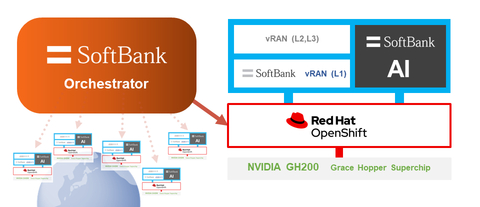
(Graphic: Business Wire)
There are challenges in operating AI and vRAN on the same infrastructure, as service level agreements (SLAs) and server configurations differ depending on the type of workload. To address these challenges, SoftBank developed the orchestrator that enables control over infrastructure settings to meet the specific kernel and requirements of each workload. This solution is expected to deliver a highly operational and cost-effective platform. In addition to AI applications developed by SoftBank, the serverless API powered by NVIDIA AI Enterprise is also integrated with the orchestrator, enabling users to run their own AI applications on the AI-RAN virtualized infrastructure.
AI and vRAN applications have distinct characteristics, requiring simultaneous optimization. For example, vRAN must control radio functions, which demands ultra-low-latency processing, whereas AI applications require efficient memory management for large data volumes and the ability to handle multiple workloads with optimal placement.
To operate such diverse applications on a unified computing platform, SoftBank developed the orchestrator by building a virtualized infrastructure using Red Hat OpenShift. This orchestrator efficiently manages resources, allowing AI and vRAN applications, as well as the orchestrator itself, to run seamlessly on Red Hat OpenShift. As a result, the platform can optimize performance based on real-time resource availability within the virtualized infrastructure.
Key Features of the Orchestrator
- Optimal matching algorithm that considers deployment requests from users, demand forecasts, and resource availability on the supply side
- Dynamic infrastructure resource adjustments based on the above algorithm
- Centralized management of multi-cluster environments to support a distributed AI data center concept
- Comprehensive management of configuration and resource status for all clusters and servers distributed across Japan
Alex Jinsung Choi, Principal Fellow of SoftBank’s Research Institute of Advanced Technology and Chair of the AI-RAN Alliance said, "SoftBank has accumulated extensive experience and expertise as a mobile operator over the years. In the realm of AI-RAN, it is essential to achieve a high-level integration of multiple components, including mobile technology, hardware, AI, network architecture, and virtual infrastructure. The realization of the AI-RAN concept and the development of the orchestrator mark a significant step forward. I am confident that by continuing to advance the development of the orchestrator, we can help address pressing societal challenges."
Chris Wright, Senior Vice President of Global Engineering and Chief Technology Officer, Red Hat, said, "With Red Hat OpenShift, we're enabling a unified foundation that supports both virtualized RAN and AI-enabled applications, giving service providers a consistent and flexible approach to deploying intelligent networks and AI applications. With SoftBank's orchestrator, service providers can optimize delivery of both AI and RAN services on the same OpenShift platform and infrastructure hardware."
Soma Velayutham, Vice President of AI and Telecoms at NVIDIA said, “SoftBank’s successful development of its orchestrator and integration with NVIDIA AI Enterprise helps create an AI marketplace for AI-RAN infrastructure. This bridges the gap between AI supply and demand and opens a multi-billion-dollar revenue opportunity for telcos worldwide for underutilized RAN infrastructure.”
About SoftBank Corp.
Guided by the SoftBank Group’s corporate philosophy, “Information Revolution – Happiness for everyone,” SoftBank Corp. (TOKYO: 9434) operates telecommunications and IT businesses in Japan and globally. Building on its strong business foundation, SoftBank Corp. is expanding into non-telecom fields in line with its “Beyond Carrier” growth strategy while further growing its telecom business by harnessing the power of 5G/6G, IoT, Digital Twin and Non-Terrestrial Network (NTN) solutions, including High Altitude Platform Station (HAPS)-based stratospheric telecommunications. While constructing AI data centers and developing homegrown LLMs specialized for the Japanese language with 1 trillion parameters, SoftBank is applying AI to enhance radio access network performance (AI-RAN) with the aim of becoming a provider of next-generation social infrastructure. To learn more, please visit https://www.softbank.jp/en/
- SoftBank, the SoftBank name and logo are registered trademarks or trademarks of SoftBank Group Corp. in Japan and other countries.
- Other company, product and service names in this press release are registered trademarks or trademarks of the respective companies.
View source version on businesswire.com: https://www.businesswire.com/news/home/20241112940159/en/
 Business wire
Business wire 
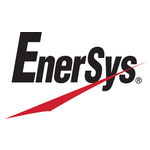



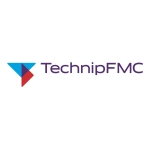

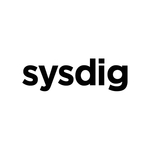

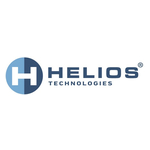
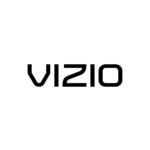

Add Comment